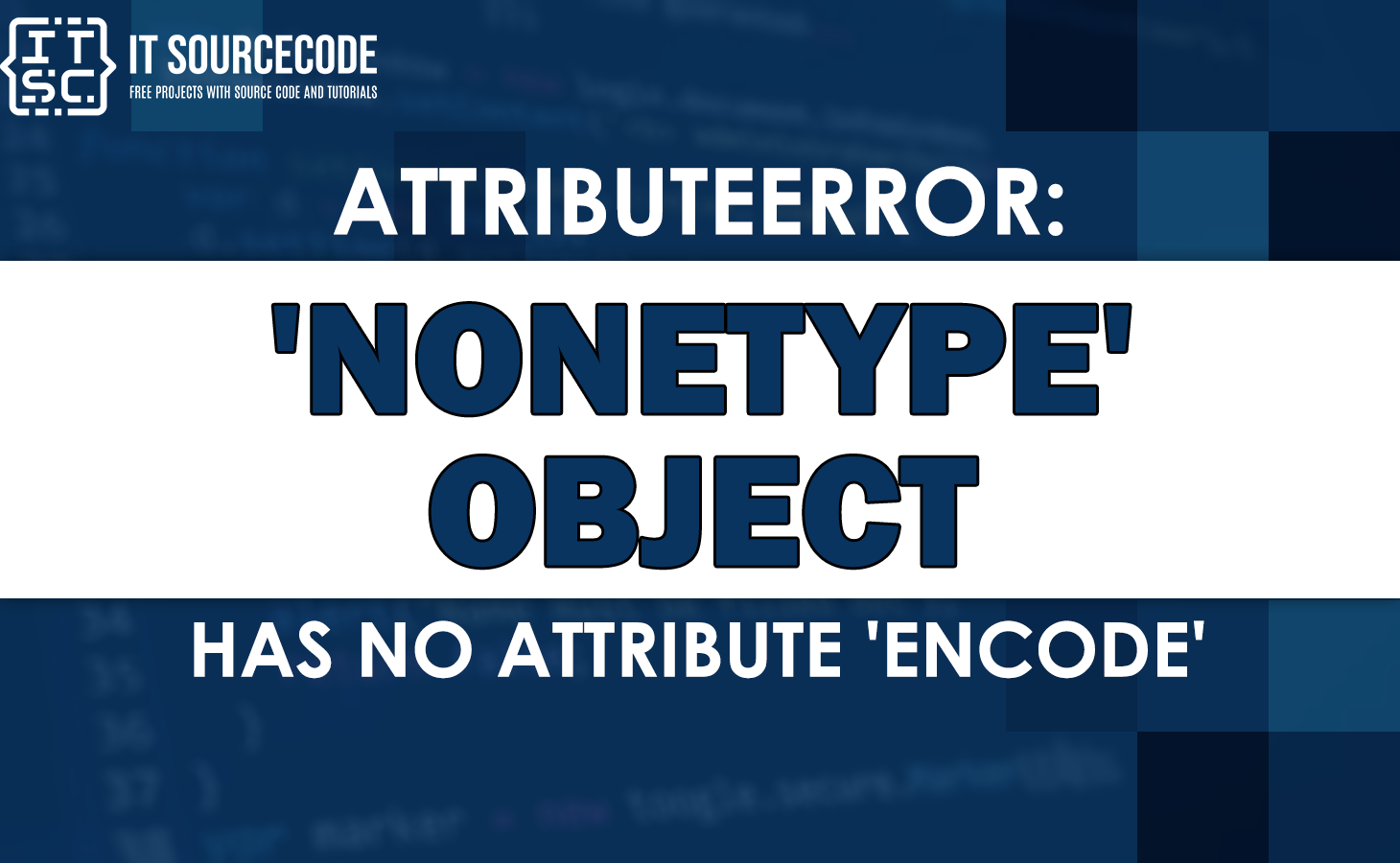In this article, we will resolve the Attributeerror nonetype object has no attribute encode error. Also, we will provide causes and a brief discussion about this error.
But before we jump to error, let’s understand what is nontype first…
In Python, NoneType is a special data type that represents the absence of a value. NoneType objects are used to indicate that a variable or function has no value assigned to it or does not return a value.
When you try to access an attribute or method on a NoneType object, you will get an AttributeError NoneType object has no attribute encode.
What is Attributeerror nonetype object has no attribute encode?
The AttributeError NoneType object has no attribute encode error is a common error that occurs when you try to call the encode() method on a NoneType object. This error indicates that the object being referenced is of type NoneType. This means that it has no value assigned to it.
As a result, the encode() method, which is used to convert strings to bytes, cannot be called on the NoneType object.
Reasons of nonetype object has no attribute encode error
The AttributeError NoneType object has no attribute encode error can be caused by several factors, including the following:
1. Calling encode() on NoneType Objects
- One of the most common causes of this error is calling the encode() method on a NoneType object.
For example, consider the following code:
my_string = None
encoded_string = my_string.encode('utf-8')In this code, the variable my_string is assigned the value of None, which means it has no value assigned to it. When the encode() method is called on the my_string variable, Python raises an error.
2. Failure to Assign a Value to a Variable
- Another common cause of the error is failing to assign a value to a variable.
For example, consider the following code:
my_string = input("Enter a string: ")
if my_string.startswith("A"):
new_string = my_string.lower()
encoded_string = new_string.encode('utf-8')In this code, the new_string variable is only assigned a value if the input string starts with the letter “A“. If the input string does not start with “A“, the new_string variable will be undefined, which means it will have a value of None.
Meanwhile, when the encode() method is called on the new_string variable, Python raises an error.
Moving on, let’s look at how to resolve this error…
How to solve Attributeerror nonetype object has no attribute encode
Now that we have discussed the possible causes of the “AttributeError NoneType object has no attribute encode” error, let’s discuss some troubleshooting to resolve it.
1. Checking Variable Assignments and Function Returns
One of the simplest ways to avoid the “AttributeError NoneType object has no attribute encode” error is to check that all variables are properly assigned a value and that all functions return a value.
This means that you should always initialize variables with a value, either explicitly or through user input, and ensure that your functions always return a value, even if it’s just None.
2. Using Conditional Statements to Avoid NoneType Objects
Another way to avoid the “AttributeError NoneType object has no attribute encode” error is to use conditional statements to check if a variable has a value before calling methods on it.
For example, consider the following code:
my_string = None
if my_string is not None:
encoded_string = my_string.encode('utf-8')In this code, the encode() method is only called on the my_string variable if it is not None. This helps to prevent the “AttributeError NoneType object has no attribute encode” error from occurring.
3. Using try-except Blocks to Handle NoneType Objects
If you cannot avoid using NoneType objects in your code, you can use try-except blocks to handle the NoneType object has no attribute encode” error.
For example, consider the following code:
my_string = None
try:
encoded_string = my_string.encode('utf-8')
except AttributeError:
print("Error: NoneType object has no attribute encode")In this code, the encode() method is called on the my_string variable within a try block. If an AttributeError is raised, the code within the except block is executed, which prints an error message to the console. This helps to handle the “NoneType object has no attribute encode” error gracefully.
4. Debugging Techniques
Lastly, if you are still having trouble resolving the “NoneType object has no attribute encode” error, you can use debugging techniques such as print statements, logging, and stepping through your code using a debugger to identify where the error is occurring and why.
Example fix code of nonetype object has no attribute encode
Example 1:
string_variable = None
if string_variable is not None:
encoded_string = string_variable.encode('utf-8')
else:
encoded_string = b''
print(encoded_string)Output:
b”
Example 2:
def encode_string(string_variable):
if string_variable is not None:
return string_variable.encode('utf-8')
else:
return b''
string_variable = None
encoded_string = encode_string(string_variable)
print(encoded_string)
Output:
b”
Both examples check if the string_variable is not None before calling the encode() method. If it’s None, they return an empty byte string as a fallback. You can use any of them as a solution to your AttributeError.
Conclusion
To conclude “AttributeError NoneType object has no attribute encode” error is a common error that occurs when you attempt to call the encode() method on a NoneType object in Python.
This error can be caused by a variety of factors, including undefined variables, failure to return a value from a function, and incorrect use of conditional statements.
We hope that this article has provided you with the information you need to fix this error and continue working with Python.
If you are finding solutions to some errors you’re encountering we also have Attributeerror: ‘axessubplot’ object has no attribute ‘bar_label’.

